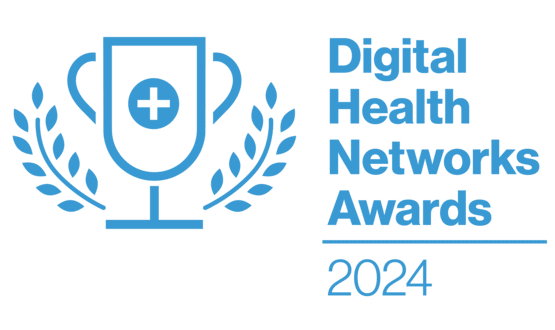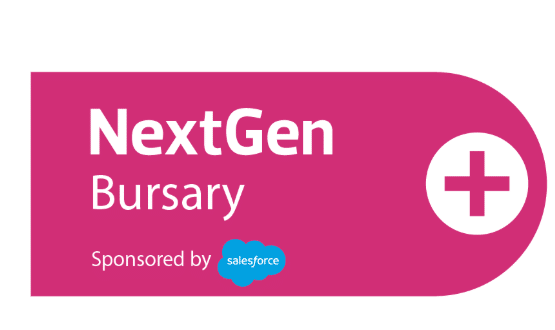Enter the CCG: on prene-ing
- 23 April 2015

We all know what a gene is – a unit of transmissible, physical, genetic information.
A meme – a concept introduced by Professor Richard Dawson in his book ‘The Selfish Gene’ – is its parallel in the field of knowledge.
He defines it as: “An idea, behaviour, or style that spreads from person to person within a culture.” A meme might be ‘the concept of evolution’; a catchphrase; or a belief system.
I think there’s another useful concept to complete the sequence: I’ve named it a ‘prene’.
A prene is an activity or program which is ‘selfish’ – it does its own thing, and doesn’t relate properly to other activities/programs adjoining it. It may not intend to take over the world, but on the other hand, no-one has told it not to try.
A classic example of a prene is the type of computer program common a decade ago, which would hog all system resources — processor time, RAM, swappable memory.
We all remember applications like that. Once it was started, nothing else on the computer would run with any speed at all. A prene-like program of this nature behaved as if it were the only thing of value in the universe.
Now clearly, a mere program can’t ‘behave’ or ‘intend’, so I am being a bit anthropomorphic here.
Nor can a program be ‘selfish’ (egotistical): but on the other hand, it can be designed in such a way that it requires everything to relate directly to it, first and foremost. A prene isn’t sentient: but its creators were.
Why do prenes matter?
Like a meme, but unlike a gene, a prene doesn’t require a physical carrier. Let’s look at the definition: “A prene is an activity, a plan or a program, designed or introduced without consideration for any unhelpful interactions with its surroundings.”
The less a prene considers its neighbours, the more intrusive it can become.
A prene doesn’t have to be a computer program: it can be an idea, a principle, or an activity. Examples might include: “Concentrate on the casualty four-hour waiting time target to the exclusion of all else.”
Another prene might be: “To save money, all patients on drug X will be swapped to drug Y” – without anyone factoring in the clinical time needed to explain the swap and stabilise the patient on the new drug.
Prenes can also be vanity projects (hence the delightful overtones of ‘preen’ in the name). How many managers and politicians have initiated vanity prene projects to make themselves or their units look good in the eyes of others, without recognising the stress and disruption that this will cause, if only through the diversion of resources from truly needy areas to trivial ones?
Prenes are dangerous! They can totally disrupt the smooth workings of a unit, for all the wrong reasons, inflicting huge levels of collateral damage along the way.
The downsides
Typically, a prene is an activity or concept around which everything else has to revolve, often for no good reason.
Externally, everything gets measured by how well it fits in with the prene – even if there is minimal evidence to suggest that working with the prene achieves any great benefit.
That doesn’t mean that prenes are wholly bad. A prene can exert massive benefit – in one particular area (it’s the concomitant interference with other areas that’s the problem).
Consider the constant cries from specialists that “GPs should become better at… whatever the subject is.”
Undoubtedly we GPs could do with knowing more about diabetes… But what about musculoskeletal medicine…? Vitamin D depletion…? COPD…?
It’s so easy to instigate a prene-type teaching programme which, although in itself excellent, disadvantages other equally important areas by denying them precious time and resources.
People can be prenes, too, as every GP knows: we’ve all got patients who think the entire NHS should revolve around them and their personal problems, without their having any insight into the effects of their demands on the system as a whole.
Diagnosis, cause and cure
How do we spot a prene? Firstly, we can ask if there have been pilot schemes showing clear evidence-based benefits of new plans or programs, or, significantly, whether these are missing.
Have assessments been wide enough, measuring the actual effects on, and interruptions to, the existing situation? Have all costs been included – particularly the more easily forgotten issues of staff time, secretarial costs and extended IT requirements?
Then there is the question of rewards and penalties. A good, practical (non-prene) plan seldom needs incentivising – the scheme itself is its own reward.
By comparison, introduce a prene and the inevitably poor response is likely to induce managers to investigate how well healthcare workers are cooperating, with penalties for those who don’t conform.
Finally, does it disrupt? Think about the unplanned admissions Directed Enhanced Service, where practices’ work has been diverted from looking after the acutely ill onto trying to prevent hospital admissions.
In itself, this is an activity of unproven benefit, but the clinical administrative work involved is so great that one practice has apparently diverted all its partners onto home visits to fulfil the directives of the DES, leaving the salaried doctors and trainees to run the surgery itself.
It’s not just activities that can be prenes – false assessments of activities can easily become prenes, too. How much time is wasted on collecting data for monitoring GP quality using totally inappropriate measurements such as breast feeding or immunisation rates?
Why is this so important in informatics?
A prene may be difficult to switch off – largely because of the loss of face implied by abandoning the project.
Not only is the prene now consuming resources at an uncontrolled rate, but its effects can’t always be modified. The healthcare equivalent of a black hole, it can become increasingly voracious of time and resources.
To my mind, current NHS prenes include: ‘Quantity of data is more important than its quality, clinical relevance or its ease of communication’; ‘Finance, not patient care, is the bottom line’; and ‘It’s got to be completely perfect or we don’t do it – ever’.
How do we stop prenes? Prevention is the best – identifying hare-brained, uncontrolled, intrusive, diversionary or data-hungry schemes before they get implemented.
But once an established prene is recognised, it must be killed off swiftly and decisively, however loud the howls of rage from those who instigated it.
I’d like the concept of prenes to become well-known within the NHS, because the sooner current prenes are dealt with, the better will be the nation’s health, the smaller the healthcare bill – and the less the stress on NHS staff, too.
What do you think are the current major prenes in the NHS? Do comment!


Dr John Lockley
Dr John Lockley is clinical lead for informatics at Bedfordshire Clinical Commissioning Group and a part-time GP.




